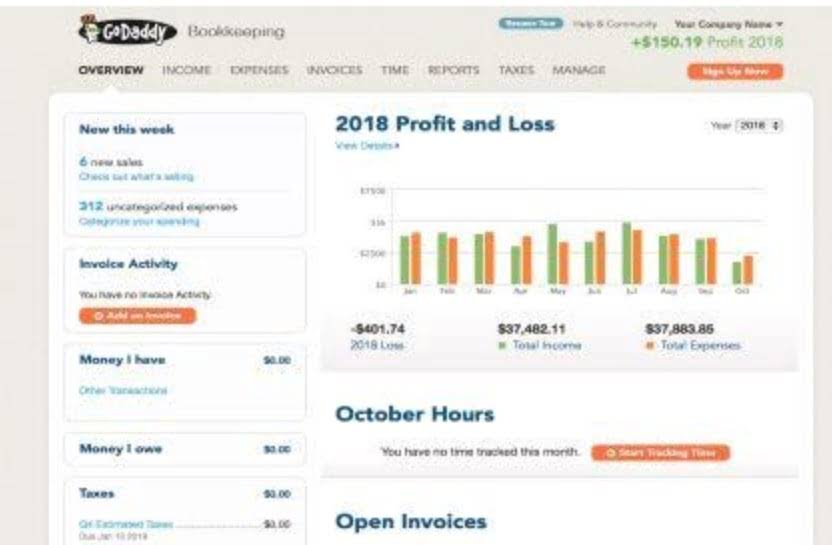
This content has been made available for informational purposes only. Learners are advised to conduct additional research to ensure that courses and other credentials pursued meet their personal, professional, and financial goals. Coursera’s editorial team is comprised of highly experienced professional editors, writers, and fact… Here’s an example of how you’d enter a transaction in the Intuit software.
- Remember that you want to tailor the role’s responsibilities in the job description so that it’s not just aligned with the position but with your company.
- Standard methods of bookkeeping are the double-entry bookkeeping system and the single-entry bookkeeping system.
- There’s no one-size-fits-all answer to efficient bookkeeping, but there are universal standards.
- How your business operates is unique, and your bookkeeping follows suit.
- However, compensation will widely vary depending on the employer, location, and candidate experience.
Many small companies don’t actually hire full-time accountants to work for them because of the cost. Instead, small companies generally hire a bookkeeper or outsource the job to a professional firm. One important thing to note here is that many people who intend to start a new business sometimes overlook the importance of matters such as keeping records of every penny spent. Proper bookkeeping gives companies a reliable measure of their performance. It also provides information to make general strategic decisions and a benchmark for its revenue and income goals. In short, once a business is up and running, spending extra time and money on maintaining proper records is critical.
So, what does a bookkeeper do all day?
Becoming an accountant usually requires more training and education than bookkeeping and can be a good next step in your financial career. Both accountants and bookkeepers work to maintain accurate records of finances, and sometimes the terms are used interchangeably. Generally, bookkeepers focus on administrative tasks, such as completing payroll and recording incoming and outgoing finances.
Bookkeeping 101: Bookkeeping Basics for Small Businesses – NerdWallet
Bookkeeping 101: Bookkeeping Basics for Small Businesses.
Posted: Fri, 21 Jul 2023 07:00:00 GMT [source]
There are several standard methods of bookkeeping, including the single-entry and double-entry bookkeeping systems. While these may be viewed as “real” bookkeeping, any process for recording financial transactions is a bookkeeping process. In the normal course of business, a document is produced each time a transaction occurs.
types of bookkeeping for small businesses
Overhauling all at once can be overwhelming and discouraging, so it’s best to take it slow and make meaningful and intentional shifts. To make the topic of Bookkeeping even easier to understand, we created a collection of premium bookkeeper definition materials called AccountingCoach PRO. Our PRO users get lifetime access to our bookkeeping training videos, cheat sheet, flashcards, quick tests, tests for prospective employees, guide to bookkeeping concepts, and more.
These are individual entries in journals or ledgers that summarize each business transaction. Accountants use these journals to prepare your financial statements. These are reports containing a summary of the business’s income and expenses for a specific timeframe. Transactions include purchases, sales, receipts and payments by an individual person or an organization/corporation.
What is Bookkeeping?
Whether you outsource the work to a professional bookkeeper or do it yourself, you’ll be able to reap a variety of benefits. You should consult your own professional advisors for advice directly relating to your business or before taking action in relation to any of the content provided. Bookkeepers may also share some jobs with accountants, such as the preparation of annual financial reports and tax returns.
Bookkeepers can also deliver reports on your business’s financial standing. But what do all of these figures mean, and where do you go from there? Bookkeeping is the practice of organizing, classifying and maintaining a business’s financial records. It involves recording transactions and storing financial documentation to manage the overall financial health of an organization. Most businesses use an electronic method for their bookkeeping, whether it’s a simple spreadsheet or more advanced, specialized software.
A bookkeeper is someone who prepares your accounts, documenting daily financial transactions. Bookkeepers have been around as far back as 2600 BC—when records were tracked with a stylus on slabs of clay—making bookkeeping not the oldest profession, but pretty darn close. In the late 18th and early 19th centuries, the Industrial Revolution provided an important stimulus to accounting and bookkeeping. The rise of manufacturing, trading, shipping, and subsidiary services made accurate financial records a necessity. The history of bookkeeping, in fact, closely reflects the history of commerce, industry, and government and, in part, helped to shape it.

